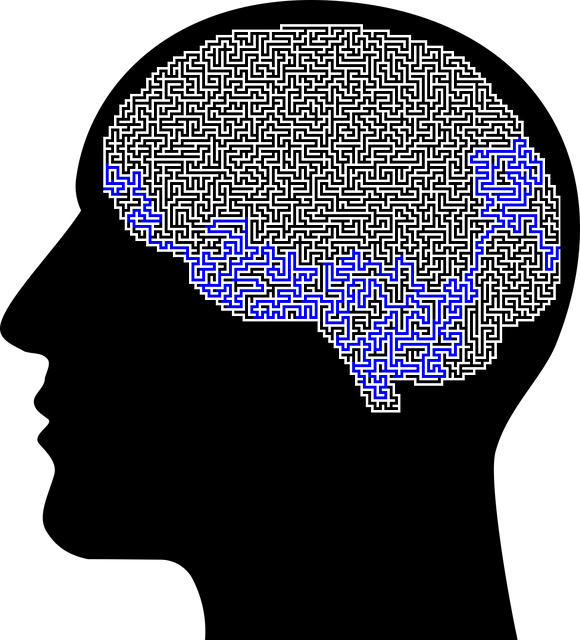Mental wellness is critical for young children's development, with early signs of distress indicating potential mental health issues as early as age 3-4. Culturally sensitive therapy and interventions like emotional regulation skills training are vital to prevent later anxiety, depression, and social difficulties. Alcohol abuse by parents significantly impacts a child's mental health, requiring specialized therapy to develop coping strategies, rebuild trust, and improve self-esteem. Play, art, and cognitive behavioral therapies serve as early intervention tools for emotional challenges, fostering resilience and healthy relationships. Community support and advocacy ensure access to services, promoting mental wellness through education, open conversations, and proactive measures against issues like alcohol abuse.
Mental wellness is a cornerstone of healthy development, especially for young children. This article delves into crucial aspects of promoting mental health in early life. We explore early signs and interventions for mental wellness in young children, focusing on the significant impact of alcohol abuse on their mental health. Additionally, we discuss therapeutic approaches tailored to young children facing emotional challenges, while highlighting the vital roles of family and community in fostering resilience. Preventative measures are also emphasized, underscoring the importance of nurturing healthy minds from an early age. Therapy for young children and strategies to combat alcohol abuse are key topics covered.
- Understanding Mental Wellness in Young Children: Early Signs and Interventions
- The Impact of Alcohol Abuse on Children's Mental Health
- Therapeutic Approaches for Young Children with Emotional Challenges
- Role of Family and Community in Promoting Resilient Mindsets
- Preventative Measures: Nurturing Healthy Minds from an Early Age
Understanding Mental Wellness in Young Children: Early Signs and Interventions

Mental wellness is crucial for young children’s overall development, and recognizing early signs can be life-altering. Children as young as 3 or 4 years old can exhibit emotional and behavioral indicators that may point to underlying mental health issues. These signs could include persistent irritability, extreme anxiety in social situations, or significant changes in appetite and sleep patterns. It’s essential to understand that these behaviors might not always be a result of mental illness but rather temporary responses to life challenges or environmental factors. However, when concerns arise, seeking professional help is vital. Early intervention through therapy for young children can prevent more severe issues from developing later in life, especially with increasing rates of anxiety and depression even in preschoolers.
One effective approach is incorporating cultural sensitivity in mental healthcare practice to ensure that interventions are tailored to each child’s unique background. Emotional regulation skills and social skills training have proven beneficial in fostering resilience and coping mechanisms in young minds. By addressing these concerns promptly, parents, caregivers, and educators can play a significant role in promoting mental wellness, even as they navigate complex issues like Alcohol Abuse that may co-occur with childhood mental health disorders.
The Impact of Alcohol Abuse on Children's Mental Health

Alcohol abuse among parents or caregivers can have devastating effects on a child’s mental health and well-being. When children are exposed to excessive alcohol consumption, they often experience heightened levels of stress, anxiety, and trauma. This is especially true if the alcohol abuse is left untreated, creating an environment of instability and insecurity at home. As a result, young individuals may develop behavioral issues, emotional disorders, and difficulties in social interactions, hindering their overall mental wellness.
Early intervention is crucial to fostering resilience building in these children. Therapy for young children affected by alcohol abuse can play a pivotal role in mood management and burnout prevention. Through specialized programs, these children can learn coping strategies, enhance their problem-solving skills, and develop healthy ways to express their emotions. Such support helps them rebuild trust, improve their self-esteem, and create a more positive outlook on life, setting the foundation for better mental health outcomes as they grow older.
Therapeutic Approaches for Young Children with Emotional Challenges

Therapeutic approaches tailored for young children facing emotional challenges are crucial in fostering their mental wellness and preventing long-term issues such as alcohol abuse. Early intervention through play therapy, art therapy, or cognitive behavioral therapy (CBT) can help children express their feelings, develop coping mechanisms, and build resilience. These methods cater to the unique needs of young minds, allowing them to explore and understand their emotions in a safe, supportive environment.
In addition to direct therapeutic interventions, Burnout Prevention Strategies for Healthcare Providers emphasize the importance of creating a nurturing atmosphere where children feel valued and understood. Social Skills Training and Self-Esteem Improvement techniques are integral components of this approach, as they equip children with the tools to build healthy relationships, communicate effectively, and develop a positive sense of self—all vital factors in maintaining good mental health.
Role of Family and Community in Promoting Resilient Mindsets

Family and community support play a pivotal role in fostering resilient mindsets among individuals, especially young children. Early exposure to nurturing environments contributes significantly to mental wellness promotion. Family dynamics that encourage open communication, emotional expression, and healthy coping mechanisms help build resilience against future challenges. When parents and caregivers prioritize mental health, they create a safe space for children to explore their emotions, fostering an understanding of mental well-being. This foundation is crucial in preventing the intergenerational transmission of issues like anxiety and depression.
Community initiatives that promote mental health awareness further strengthen this support system. Educational programs, support groups, and therapy sessions tailored for young children can address emerging mental health concerns, including those related to alcohol abuse. Through community engagement, individuals learn about available resources, reducing the stigma associated with seeking help. Mental Health Policy Analysis and Advocacy efforts also contribute by ensuring that local communities have access to comprehensive services, catering to diverse needs, and ultimately enhancing collective resilience against mental health challenges.
Preventative Measures: Nurturing Healthy Minds from an Early Age

Promoting mental wellness starts with nurturing healthy minds from an early age. This includes implementing preventative measures that focus on self-care practices and mood management for children. By teaching young folks about their emotions, helping them build strong self-esteem, and encouraging open conversations about mental health, we can foster a resilient foundation that lasts into adulthood. Early intervention can be life-saving, particularly when considering the growing concerns around alcohol abuse in younger demographics.
Therapy for young children plays a crucial role in this process, offering safe spaces to process emotions and develop coping mechanisms. Incorporating self-esteem improvement strategies helps kids build confidence and resilience against external pressures. These proactive steps not only enhance overall well-being but also reduce the risk of developing long-term mental health issues, ensuring a brighter future for our younger generation.
Mental wellness promotion is a multifaceted endeavor that requires early identification of signs, intervention strategies, and supportive environments. By understanding the impact of issues like alcohol abuse on children’s mental health and implementing therapeutic approaches tailored to their age, we can foster resilient mindsets. Family and community involvement plays a crucial role in nurturing healthy minds from an early age, emphasizing the importance of preventative measures. Together, these efforts contribute to a comprehensive strategy aimed at enhancing mental wellness promotion for young children, ensuring they receive the necessary support to thrive.








